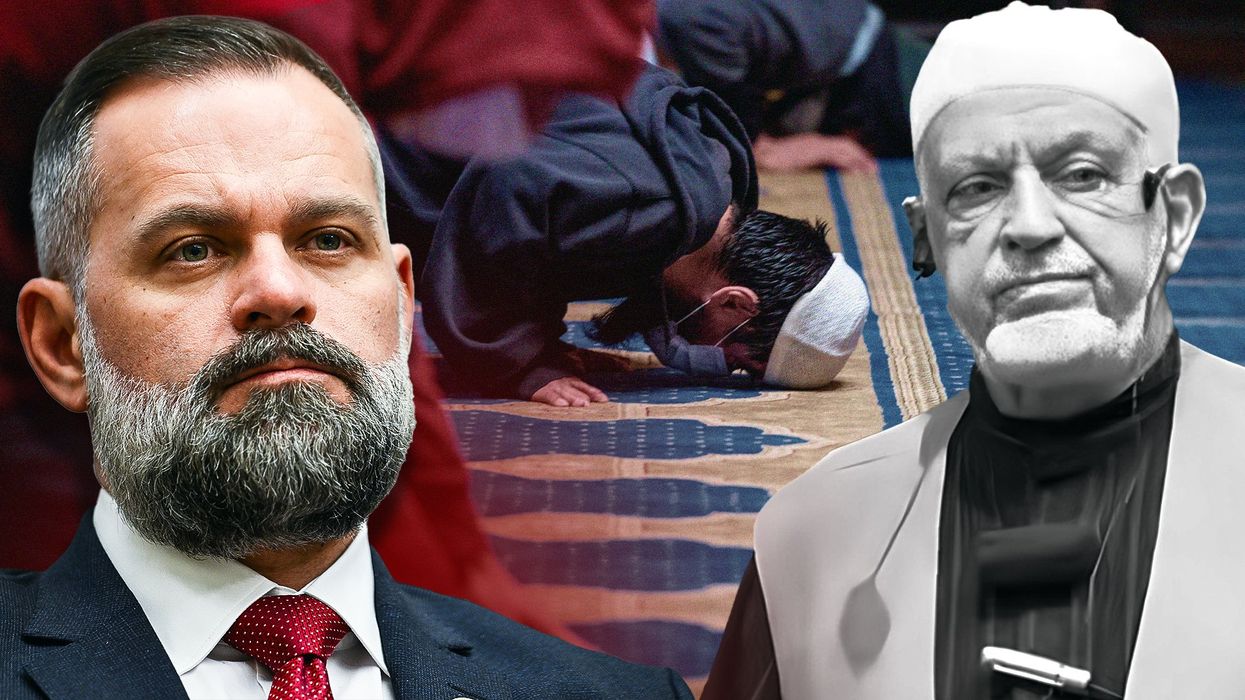© 2025 Blaze Media LLC. All rights reserved.
This weekend, two prominent Republican Senators came out swinging against mounting GOP opposition to military intervention in Libya. In separate Sunday morning interviews, Senators John McCain and Lindsey Graham both expressed disappointment in recent indications that Congressional Republicans as well as several members of the 2012 GOP presidential field support a more measured approach to our policy in Libya. While McCain and Graham might represent a legitimate and mainstream position within the party, is deviation from their form of hawkishness really the wrong-headed political heresy they contend it is? Or is this evolution the indication of recognition that current circumstances require a shift in priorities?
On ABC’s This Week, host Christiane Amanpour presented Senator McCain with some of the statements given by the GOP’s presidential contenders in last weeks CNN debate. Particularly highlighted was a statement by Congresswoman Michelle Bachmann in which she questioned the wisdom of an intervention in a country by which “we were not attacked, we were not threatened with attack, there was no vital national interest.” Shortly thereafter Amanpour asked Senator McCain what he believed Ronald Reagan might say about these responses, to which McCain responded “…that is not the Republican party that has been willing to stand up for freedom for people all over the world.” The only problem with this is that, as Bachmann had rightly indicated in the debate, it has not been resolved that we’re standing up for freedom in Libya. While the overthrow of Gadhafi would undoubtedly remove a sociopathic strong man from power, the goals of the opposition have not yet been identified. While we might be caught up in the initial fervor and glory of revolution (as many were with the recent Egyptian revolution), a more sober analysis might well prove that the beneficiaries of our bombs in Libya are the exact element we’ve been combating in other corners of the Arab world.
McCain then contended that the party’s growing hostility toward the Libya mission represents an ideological shift toward isolationism. The truth, however, is that questioning our involvement in Libya is not an indication of growing isolationism as he insists; rather it’s an indication of growing sobriety. As our domestic problems continue unabated, there is a growing sense that we must be more deliberate in our foreign affairs. One needn’t be a military isolationist to question America’s involvement in Libya. When America invaded Iraq, there was months of vigorous debate. This was not the case with Libya, a conflict that appears more and more every day to be growing beyond the scope of NATO’s initial charge.
Across the dial Senator Lindsey Graham took to NBC’s Meet the Press to express his opinion. When asked about Speaker John Boehner’s threat to defund the mission in Libya because it violated the 1973 War Power’s Act, Graham replied, in part, that “…Congress should sort of shut up…”. Aside from a clear lack of tact, Graham shows a startling disregard for the law. While Graham correctly states that the constitutionality of the War Powers Act is debatable, it is not the job of the executive branch to simply dismiss laws it deems unconstitutional, especially laws that have been adhered to in good faith for nearly four decades. On top of this, it’s certainly not the task of the legislature to collaborate with the executive to enable those dismissals and allow them to go unquestioned.
While the questionable legality of the War Powers Act should indeed be examined, President Obama has, in the past, expressed support for it. In the March 21st letter to congress in which he notified the legislature of his decision to commence with airstrikes and missile attacks on Libya, the President wrote, “I am providing this report as part of my efforts to keep the Congress fully informed, consistent with the War Powers Resolution. I appreciate the support of the Congress in this action.” Clearly, the President assumed that his actions needed to adhere to the War Powers Act in March. Should the president not be held to the standards he laid out three months ago? Should Republicans be admonished for having no stomach for such a blatant display of hypocrisy?
Clearly, Senators McCain and Graham do not believe that the recent emergence of skepticism within the Republican ranks represents a positive development for the party, and America’s, future. My question becomes, would Senators McCain and Graham have the Republicans be the party blind acquiescence? Is our position so thoroughly fixed to foreign interventionism and executive war powers that asking even the most basic of questions represents partisan heresy? With so many unresolved questions hanging over our foreign policy, we shouldn’t allow party hacks to shame us into silence. John McCain and Lindsey Graham should, to borrow a phrase from Senator Graham, shut up and allow us to openly debate the wisdom of Libyan intervention.
Just to refresh your memory, here’s a video of the Sunday morning geopolitical brain trust that told you to shut up, shaking hands with Gadhafi in 2009. As Mark Steyn asks over at The Corner, can this be construed as “empowering” Gadhafi?
Nick Rizzuto is a producer for GBTV. Follow him on Twitter @Nick_Rizzuto.
Want to leave a tip?
We answer to you. Help keep our content free of advertisers and big tech censorship by leaving a tip today.
Want to join the conversation?
Already a subscriber?
more stories
Sign up for the Blaze newsletter
By signing up, you agree to our Privacy Policy and Terms of Use, and agree to receive content that may sometimes include advertisements. You may opt out at any time.
© 2025 Blaze Media LLC. All rights reserved.
Get the stories that matter most delivered directly to your inbox.
By signing up, you agree to our Privacy Policy and Terms of Use, and agree to receive content that may sometimes include advertisements. You may opt out at any time.


